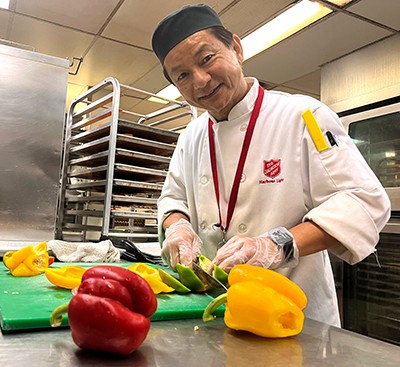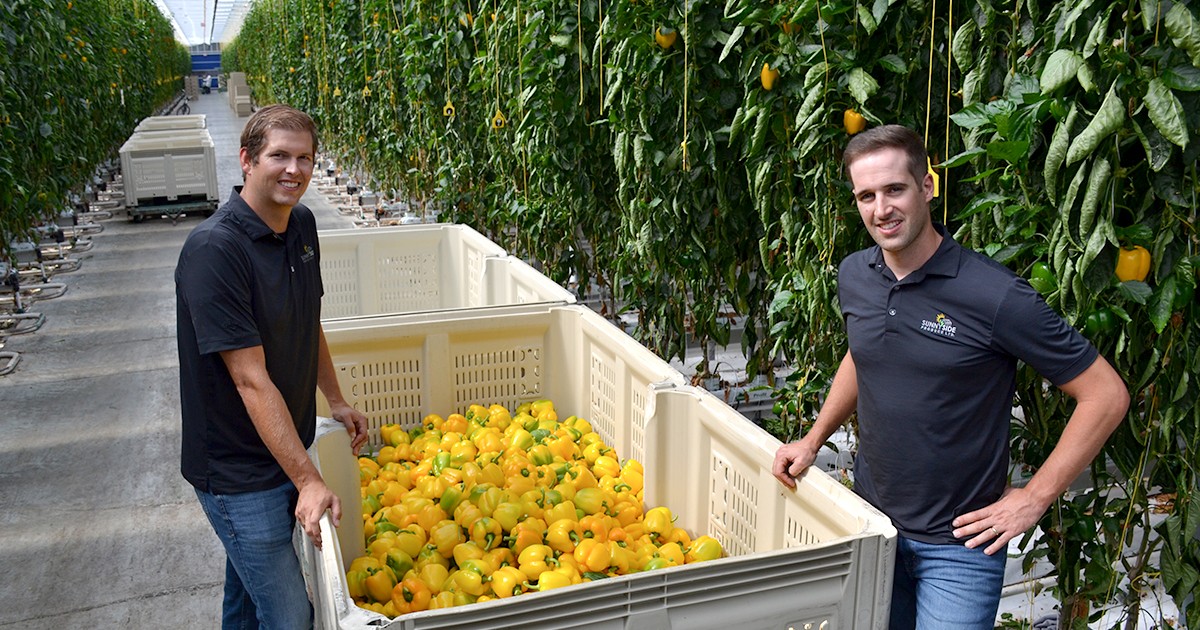Community meals at The Salvation Army Vancouver Harbour Light are enjoyed by men, women and children in need of nourishment and food. Offering a range of dishes, seven days a week, in a caring, safe environment, guests from all walks of life can feel welcome, and connect with staff for information or for other resources.
So, when Sunnyside Produce Ltd., a family-run greenhouse that grows 34 hectares of bell, mini and other specialty peppers in Surrey and Delta, B.C., were reviewing their annual giving options, they had an idea.
Spreading the Peppers
“Every year, we make donations to different organizations, and we know The Salvation Army does a lot of goodwork locally,” says Corne Moerman, a fourth-generation grower. “Last year, we got to talking about setting up a program where we ship a pallet per week, which we’ve been doing for a few months now.”
Since last May, Sunnyside Produce Ltd. has shipped more than 200 kilograms of bell peppers a week to Salvation Army ministry units across British Columbia, totalling more than 3,000 kilograms.
According to Cindy Cheung, community engagement co-ordinator, Vancouver Harbour Light receives 30 percent of the donation, which is used to support their community residential facility, shelters and recovery clients who are working through programs to quit substance use and reintegrate safely into the community. This support also extends to helping the broader community in Vancouver's Downtown Eastside.
The rest of the peppers are distributed to Army ministry units in Richmond, New Westminster and North Vancouver, where they assist with food banks, family services and homeless outreach.

Filling a Need
“Vancouver Harbour Light serves approximately 500 to 550 meals daily through our community meals service and residential programs,” says Cindy. “Food has a significant impact not only on filling empty bellies but helping clients focus on their program goals toward recovery and reintegration.”
Chefs incorporate the peppers into a variety of dishes, such as roasted pepper sides, stir-fries, stews, cold soups such as gazpacho, and a salad bar.
“The peppers have helped us add an additional variety of fresh produce to our rotating menu,” Cindy explains. “This enables our kitchen to find and create numerous dishes for a balanced diet for our clients across the programs.
“Knowing that the peppers come fresh weekly from a local farm makes us feel grateful and proud that we are putting high-quality ingredients on our clients’ plates. We are thankful for community support.”
For Corne and his family, giving to organizations such as The Salvation Army is an outward expression of their faith.
“As Christians, we believe it’s important to help people who are struggling and to donate to people in need,” he says. He notes that organizing a weekly pickup ensures the produce is delivered as fresh as possible and can be used right away.
“For us, donating peppers is a small thing we can do, and we hope it helps fill a need and will go a long way.”
Melissa Yue Wallace is a development stewardship specialist at the Salvation Army territorial headquarters in Toronto.
This story is from:








Leave a Comment